#Tribute to enslaved citizens
Text
You know, I'd rather Marvel forgot about Steve and never mentioned him again. If it's going to be whatever that was in She-Hulk and a shield on the statue of Liberty and jokes of "oh he might be in the moon!" because Marvel refuses to tell us where he is or what happened to him just...... let him be. Never mention him again.
I can't believe this is his legacy. A man who stood up to the entire US government, who refused to sign Accords that would have enslaved a good chunk of citizens, who took down Shield and Hydra and disobeyed orders he knew weren't right, who was loyal to those around him and inspired his teammates, who stood up to Thanos when he was alone in front of a damn army of aliens and had the strongest moral compass of all the MCU... and his legacy are jokes about his virginity.
Just leave him alone. Where the hell are the jokes about Stark, why does Stark get a funeral and memorials and tributes but Steve gets this? Maybe I'm exaggerating but damn it feels so irritating......
554 notes
·
View notes
Text
This is a paper I wrote for one of my courses about media and materiality. I will use any excuse to write on The Hunger Games. My instructor actually liked it, asking why I didn't write anything on Snow lmao. Maybe for part two, David. Don't encourage me. I also want to say that the responses on my post regarding the names in THG helped so fucking much. Thank you to those people who interacted with that post!
Disclaimer: this assignment was meant to be informal for us so we wouldn't feel too overwhelmed with the studyload, so there is some non-academic register in here.
Panem et Circenses: The Forecast of a Mass Culture Storm
In a world long ago, the Roman poet Juvenal critiqued the people of Rome for discarding their responsibilities as citizens. While Sejanus tried to overthrow the Emperor Tiberius, Juvenal claimed that the people only cared to lavish in food and frivolities, saying that “the mob / That used to grant power, high office, the legions, everything, / Curtails its desires and reveals its anxiety for two things only, / Bread and circuses” (Juvenal ll. 78-81). Juvenal’s phrase “bread and circuses” is often referenced in relation to “mass culture to denote a process of social decline” (Brantlinger Bread and Circuses 22). The Roman Empire had a method of appeasing the masses to avoid uprisings: keep them fed and offer them entertainment (23). Similarly to Juvenal who disapproved of this manner of ruling, socialist scholars and avant-garde artists criticized mass culture for subjecting civilization to this numbing of critical thinking (Brantlinger “Mass Media” 99). The twentieth century knows an incredible rise of technological developments and mass production of consumer goods which has led to several social developments, e.g. the blurring of class distinctions and an increase in literacy (100, 103). Although these may seem as positive effects, mass culture threatens to silence individuals into commodification, as happened to the Romans (Dubord 14). Juvenal had forecasted the enslavement of people to mass-produced consumable goods and, looking at contemporary times, it seems we are left standing in the rain without an umbrella. Yet, this is not the worst mass culture has to offer. A flood of dystopian stories in the literary world has predicted and warned us for far crueler storms, depicting oppressive governments that have gradually dominated their citizens through bread and circuses.
One of these stories is The Hunger Games (THG) by Suzanne Collins. Set in a futuristic United States, renamed ‘Panem,’ THG depicts a picture of mass culture at its extreme. Panem is divided into twelve districts, each responsible for the production of a specific good. These products are the sole reason the districts are still considered as relevant for the Capitol, the oppressive government. While the majority of the districts suffer from poverty, the Capitol lavishes in the districts’ importations of food and other materialities. Collins depicts the duality of abundant, capitalist consumerism with the contrast between the riches of the Capitol and the scarcity of the districts. The Capitol has managed to keep the districts sedated through fear; they are coerced into complacency through strict regulation and the annual Hunger Games. Seventy-four years before the original events of THG, the thirteen districts rebelled against the Capitol but were violently defeated. As punishment, District Thirteen was completely obliterated and the remaining twelve districts were forced to send a male and female tribute between the ages of twelve and eighteen to the Games where they would have to fight to the death in an arena as entertainment for the Capitol. The twenty-four tributes are randomly selected and can place their name in the reaping multiple times in exchange for tesserae, a year’s supply of grain and oil. Households that could not afford food could make bread from the tesserae. Collins draws a connection to ‘panem’ in Juvenal’s phrase through the tesserae system which is a method for the Capitol to keep the districts dependent on the government’s supply of basic needs, like bread.
Juvenal’s ‘circenses’ is apparent in two elements in THG. The first is the Hunger Games themselves which are meant to entertain the Capitol’s citizens. Before the Games there are interviews with the tributes and various television segments. The coverage of the tributes has two purposes: to show the Capitol’s citizens how well-fed the tributes are in the Capitol, a kindness offered to them by the very institution that places them in a position of death, and to obtain sponsors during the Games who will send necessities to the tributes in the arena, e.g. medicine or water. The second reference to ‘circenses’ is the character Peeta Mellark. Peeta is the male tribute from District Twelve and the baker’s son. His first name is a reference to pita bread, and as the baker’s son, he is also a clear connection to ‘panem.’ Moreover, he once gave bread to Katniss, the female protagonist, when she and her family were at the brink of starvation. The loaf of bread symbolized hope and sparked a new motivation in Katniss to live again (Collins THG 37). His surname is a shortened version of ‘malarkey,’ meaning “silly behaviour or nonsense” (“malarkey”), similar to the contents of circuses. Peeta is not a seasoned fighter and his chances of winning the Games are low. However, the Games can be played either through fighting or entertainment. Peeta is incredibly charismatic and uses that to his full advantage whenever the cameras are around to gain sponsors (Collins THG 158). He is, like the Capitol, both a provider of food and entertainment.
Where the Capitol symbolizes fear, Peeta represents hope. As an oppressive government, the Capitol’s goal is to silence people into complacency so they do not rise against the authorities, as the Roman Empire. This is the opposite for Peeta who, in the sequel Catching Fire, uses his likeability among the citizens of the Capitol to defy its very government (Collins 289). Throughout the trilogy, he has consistently used his abilities to both provide and perform for noble causes that concern the people, not the government. When Peeta gave Katniss the bread, he gave her renewed hope to live again which was more sustainable than the Capitol’s tesserae supply that merely lasts a year and is only given in exchange for a bigger chance at death. Peeta’s hope was free. THG serves as a warning for a future that is ruled by mass consumption and production which blinds citizens to the dictatorship they are governed by. Juvenal’s faraway world of the Roman Empire is not so far away after all, it has always been here and is gradually taking over our future. But, we know what is coming and we can prepare for the storm and find shelter. As Peeta’s character shows, there is hope, a possibility, to provide for each other rather than depend on authorities that prefer to see us as commodities, to use the government’s very own methods against it and become individuals once more.
Works Cited
Brantlinger, Patrick. “Introduction: The Two Classicisms.” Bread and Circuses: Theories of Mass Culture as Social Decay. Cornell University Press, 1985, pp. 17-52.
---. “Mass Media and Culture in Fin-de-Siècle Europe.” Fin-de-Siècle and Its Legacy, edited by Mikuláš Teich and Roy Porter, Cambridge University Press, 1990, pp. 98-114.
Collins, Suzanne. Catching Fire. Scholastic Ltd, 2011.
---. The Hunger Games. Scholastic Ltd, 2011.
Debord, Guy. “The Commodity as Spectacle.” The Society of the Spectacle, translated by Ken Knabb, Bureau of Public Secrets, 2014, pp. 13-20.
Juvenal. “Satire X – The Vanity of Human Wishes.” Poetry in Translation, translated by A. S. Kline, 2001, https://www.poetryintranslation.com/PITBR/Latin/JuvenalSatires10.php. Accessed 14 Dec. 2023.
“malarkey.” Cambridge Dictionary, https://dictionary.cambridge.org/dictionary/english/malarkey. Accessed 14 Dec. 2023.
#the hunger games#thg#suzanne collins#the ballad of songbirds and snakes#tbosas#katniss everdeen#peeta mellark
22 notes
·
View notes
Text
The World Of Ice & Fire: Ten Thousand Ships (Revised 12/13/22)
Warning, Spoilers Ahead…
Garin’s forces have been annihilated by the Valyrians. Nymeria, the princess of Ny Sar, knew she needed to leave before the Valyrians arrived or her city would suffer the same fate.
Ny Sar no longer had any fighting men as they had left and died with Garin. Nymeria gathered all the remaining ships – large and small. Legends state the fleet consisted of 10,000 ships but there was no accurate count.
Nymeria led the fleet down the Rhoyne, “past ruined and smoking towns and fields of the dead, through waters choked with bloated, floating corpses.” Nymeria and her fleet used an older channel of the Rhoyne and emerged into the Summer Sea.
The fleet consisted of river crafts, skiffs, poleboats, trading galleys, fishing boats, pleasure barges, and rafts. Most weren’t seaworthy and were crammed full of women, children, and old men.
Many ships were lost in the voyage. Some sank in storms. Others turned back only to be captured and enslaved by the Valyrians. Others fell behind and were never seen again.
Nymeria’s fleet first arrived in the Basilisk Isles only to battle the corsair kings of Ax Isle, Talon, and the Howling Mountain. Nymeria lost twoscore ships and hundreds of Rhoynar were carried off into slavery.
The corsairs offered Nymeria a deal: The Rhoynar would be allowed to settle on the Isle of Toads if they gave up their boats and sent each king thirty virgin girls and pretty boys yearly as tribute. Nymeria refused and took her fleet to sea again.
Nymeria’s next stop was “the steaming jungles of Sothoryos”. “Some settled on Basilisk Point, others beside the glistening green waters of the Zamoyos, amongst quicksands, crocodiles, and rotting, half-drowned trees. Princess Nymeria herself remained with the ships at Zamettar, a Ghiscari colony abandoned for a thousand years, whilst others made their way upriver to cyclopean ruins of Yean, haunt of ghouls and spiders.”
Sothoryos has a few benefits – gold, gems, rare woods, exotic pelts, queer fruits, strange spices – but the Rhoynar did not flourish. The heat was sullen and oppressive. The stinging flies brought one disease after the other: green fever, the dancing plague, blood boils, weeping sores, and sweetrot. The Zamoyos River was infested with carnivorous flesh, and “tiny worms that laid their eggs in the flesh of swimmers”.
The towns on Basilisk Point were raided by slavers, the populations either killed or carried off by the slavers. Yeen suffered attacks from the “brindled ghouls of the jungle deeps”.
Most of the afflictions are typical of tropical areas – especially for people unused to the climate. The dancing plague intrigues me – was it like the dancing plague of Europe? And the ghouls – are they actual supernatural creatures or simply strange animals?
The Rhoynar lasted a year in Sothoryos before they reached their breaking point. One day a boat from Zamettar arrived at Yeen to find that every member of the town had vanished without a trace. Shades of Roanoke? Despite the mystery surrounding Roanoke, the most likely theory is the citizens of Roanoke assimilated with a nearby native tribe to avoid death by starvation. Where did the natives of Yeen go? Were they taken by a mass ghoul attack and turned into yum-yums? Did slavers abduct the entire population? Did they decide to ditch the rest of the Rhoynar and head out to sea?
Nymeria summoned her remaining people and returned to the sea. They spent three years sailing the southern seas.
They landed on Naath, the Isle of Butterflies. The natives were a peaceful people who welcomed the newcomers. The Naath gods, however, were all “nope” and struck down the Rhoynar with a “nameless mortal illness”. Back to the ships!
The Rhoynar next settled on an “uninhabited rock off the eastern shore of Walano”, which became known as the Isle of Women. Unfortunately, the stony soil yielded little food, and many died from starvation.
By this point, the Rhoynar were desperate and frustrated. Nymeria commanded a return to the boats and a portion of the group decided to follow Druselka, a priestess who felt Mother Rhoyne was calling her children home. Druselka and her followers returned to Rhoyne only to encounter the Valyrians. They were hunted down, slain, or enslaved.
Nymeria decided to sail towards Westeros.
There is a possibility of HBO ordering a Ten Thousand Ships series based on Nymeria’s travels. The fans’ reception to the idea seems lukewarm. I admit it’s not the highest spot on my list of potential adaptations but here are my benefits of a potential show:
· The demonstration of the entitlement of the destruction fueled Valyrian Freehold. The series should begin with the final destruction of the Rhoynar. There is a perception that Valyria was a mythical place of wonder. The reality is it was an empire based on slavery, blood magic, colonization, destruction, and genocide that annihilated the actual mythical place of wonder. Dany’s (poorly written) show finale in King’s Landing is a typical Valyrian response to defiance: destroy everything in sight, damn the innocents caught in the crossfire. “Fire and Blood” is more than the Targaryen house words – it’s a Valyrian way of life.
· An exploration of Nymeria beyond “mythical warrior woman”. What was the reality behind the legend?
· Pirate battles!
· The horrors of Sothoryos!
· Naath. Just to see show-only fans go “Wait, wasn’t that where Grey Worm and the Unsullied went to?”
· I assume the last season of the show would be Nymeria’s arriving in Dorne and marrying Mors Martell. Show--fans will finally have a non-irritating Dornish storyline.
Up next, Nymeria and company arrive in Dorne.
#asoiaf#twoiaf#game of thrones#Nymeria#Rhoynar#Valyria#Ten Thousand Ships#Sothoryos#Yeen#Naath#Dorne#a song of ice and fire#Corsair Kings#Valyrian Freehold#Isle of Women
2 notes
·
View notes
Text
Strap in, y'all. This is a bit of a long story. But I felt particularly proud of how evil I am in this. Also, I should probably never run for office. Of anything. Not even Treasurer.
So, I'm playing Stellaris, which is an empire building game set in space. I'm playing sort of an updated Roman Empire. Arrogant, militaristic, and mildly supremacist. (Nearly every non-human race is some flavor of slave, and only the humanoids that look close to human are even given residency status in the Empire.)
Early on in my game, a neighboring empire of plant people begs to be my vassal, as they are too small, and have only a small fleet of ships. They're xenophobic, but pacifistic and generally isolationist.
The vassalage agreement is pretty mild; they only have to give me the minimum tribute of money and goods, they don't have to participate in my wars, and despite the xenophobia, our borders are open and we have a migration treaty. Their species can't be full citizens of mine, but they can be residents. They've got a pretty sweet deal, considering my very large Navy and the fact that I'm about four times their size, and overall they're pretty loyal. At least at first.
Another neighboring Empire that I'm friendly with asks me if I'd like to participate in their war against their enemy empire, and I accept. (A few more assets, including a planet of juicy slaves! Why not?) But while I'm off conquering, my vassal gets nervy, and decides to declare independence. NOT ON MY WATCH, BUDDY.
As the current war is wrapping up, I pull my fleets back and head for my vassal. I conquer every inhabited planet in their empire, leaving their homeworld for last. I force the homeworld to watch as I bombard every other planet with a deadly pathogen, that exterminates all life on the worlds, and renders them lifeless for thousands of years. The remaining population on the homeworld is then enslaved, genetically engineered to be nerve-stapled (made dumb and unable to feel any emotion), delicious (yes, you read that right. I engineered them to be extra tasty.) slaves, and then reclassify them as livestock. I then sell them as food on the Galactic Market.
Yeah. Don't betray me. =:)
1 note
·
View note
Text
SABATON - Smoking Snakes (Official Lyric Video)
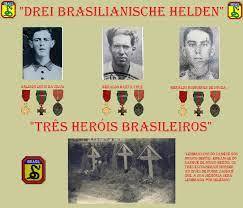

Desenho de Walt Disney
THE THREE BRAZILIAN HEROES OF THE SECOND WAR
Why does Brazil hide its heroes?
Brazilian bandits have seen movies, won countless strings, books and master's theses, all in exaltation to the career of bandits who killed and robbed innocent people left and right.
See the winning plot of the last carnival: Lampião.
A bandit who, with his gang, went from city to city, terrorizing the residents.
Few know the history of the only city that defeated Lampião.
The prefect summoned the men and their weapons and surrounded the city, waiting for the coward, who, knowing that armed men were waiting for them, passed well away.
This topic in the history of Brazil's history proves that armed citizens will never be enslaved. Obviously, you will never hear this story in classrooms.
A great example of this is the disdain that historians make of Brazil's participation in the second war.
I myself believed that Brazil sent its army to embarrass itself.
It wasn't like that. To this day, Italian cities honor our brave soldiers, who freed them from fascist and Nazi occupation.
To this day, renowned war channels authenticate the “legend” of the three Brazilian soldiers who fought until the end against the German army, and sacrificed themselves for their own.
Even with the tributes in Italy, the historical record…
Everything to stifle our participation, which was fundamental in the country.
Our mongrel complex is not ingrained, it is programmed, spread by Brazil's educational and political elite.

The only army where whites and blacks fought side by side.
The army that, without technology, always surprised its enemy.
I imagine how the squares (name given to the soldiers of the second war) would see the current army.
A bunch of soft asses, who even under the clamor of a population, in the face of a clear blow in the elections, and in the face of a dictatorship that now dominates Brazil with all its might, lowers its head to a government that humiliates them every day .
As happens in other dictatorships, our generals don't care about defending the nation, but money in the account.
Screw that the country sinks, that its citizens become slaves of dictators.
The current Brazilian army is the greatest traitor of the country, and with great pride, as the generals rage.
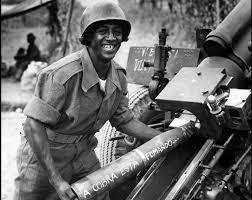
OS TRÊS HERÓIS BRASILEIROS DA SEGUNDA GUERRA
Por que o Brasil Oculta Seus Heróis ?

Chegada de 2.760 homens da Força Expedicionária Brasileira pelo navio James Parker, em 1945Foto: Acervo Arquivo Nacional
Arrival of 2,760 men from the Brazilian Expeditionary Force by the ship James Parker, in 1945
Photo: National Archive Collection
Bandidos brasileiros viram filmes, ganham inúmeros cordéis, livros e teses de mestrados, todos em exaltação à carreira de bandidos que matavam e roubavam a torto e a direito de pessoas inocentes.
Vide o enredo campeão do último carnaval: Lampião.
Um bandido que com seu bando, ia de cidade em cidade metendo o terror nos moradores.
Poucos sabem a história da única cidade que venceu Lampião.
O prefeito convocou os homens e suas armas e cercou a cidade à espera do covarde, que sabendo que homens armados os esperavam, passou bem longe.
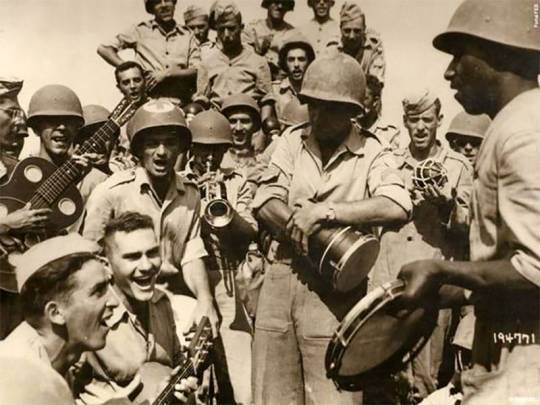
Esse tópico da história da história do Brasil, comprova que cidadãos armados, jamais serão escravizados. Obviamente, nunca ouvirá essa história nas salas de aula.
Um grande exemplo disso é o desdém que historiadores fazem da participação do Brasil na segunda guerra.
Eu mesmo acreditava que o Brasil enviou seu exército pra passar vergonha.
Não foi bem assim. Até hoje, cidades italianas homenageiam nossos bravos soldados, que os libertaram da ocupação fascista e nazista.
Até hoje, renomados canais de guerra, autenticam a “lenda” dos três soldados brasileiros que lutaram até o fim contra o exército alemão, e se sacrificaram pelos seus.
Mesmo com as homenagens na Itália, o registro histórico…
Tudo pra abafar a nossa participação que foi fundamental no país.
O nosso complexo de vira-lata não é arraigado, é programado, difundido pela elite educacional e política do Brasil.
O único exército onde brancos e negors lutavam lado a lado.
O exército que, sem tecnologia, sempre surpreendia o seu inimigo.
Eu imagino como os pracinhas (nome dado aos soldados da segunda guerra) veriam o exército atual.
Um bando de bunda moles, que mesmo sob o clamor de uma população, diante de um golpe claro nas eleições, e diante de uma ditadura que agora domina o Brasil com todas as sua forças, abaixa a cabeça para um governo que os humilham cada dia.
Como acontece nas outras ditaduras, nossos generais não querem saber de defender a nação, e sim de dinheiro na conta.
Que se dane que o país afunde, que seus cidadãos virem escravos de ditadores.
O exército brasileiro atual, é o maior traidor da pátria, e com muito orgulho, como esbravejam os generais.
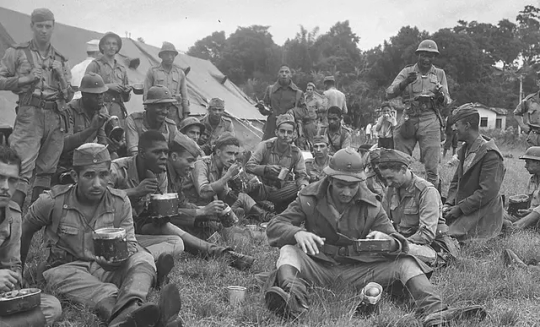
The only allied army where blacks and whites fought side by side
Para saber mais
To know more
youtube
English natives, they knew that there is translation in YT videos. Just click CC, okay? I will not subtitle.
#brazil#brasil#italia#italian#world war ii#sabaton#heavy metal#metal music#feb#pracinhas#anos 40#40s#world history#history#Youtube
1 note
·
View note
Text
FOR WANT OF A NAIL
@baldwin-montclair @adowobsessed @sylverdeclermont @nicki-mac-me @thereadersmuse @kynthiamoon @adowbaldwin @profoundme444 @beautifulsoulsublime @lady-lazarus-declermont
Part Two
Summary: Baldwin Montclair had a string of ex girlfriends, a single child, and a lifetime longer than most people could dream of to make all kinds of mistakes.His family knew one which kept coming out of the woodwork to irritate him every other century.
Also on Ao3
GRAPHIC DEPICTIONS OF DEATH, BLOOD, AND GORE
Bibracte would never be considered the cradle of civilisation, but it had been his mother’s. She had taken Tinus there the year before she died. He had clung to her legs, terrified of the overwhelming whirlwind of sights and smells in the overcrowded streets. He had preferred their usual roughshod existence in the forests; the quiet crackle of the cooking fire, the tinny scrape of wet stone on blade, his mother’s quiet songs.
His father had seen to his education, taking him on as his apprentice as soon as he was able to hold a bow. They had harassed Roman legionnaires for profit and pleasure for a little over ten years before they were finally caught on the borders of a Roman encampment. His father had been hacked to pieces. It had been an honourable death for a mercenary.
The jostling of the crowd around him brought his thoughts back to reality. He was standing in a field on the outskirts of the town, shoulder to shoulder with what seemed like half its population. Tinus was grateful for the body heat; it was a bitterly cold night but no fires had been permitted for fear the local infantry would investigate the light.
The Aedui were supposed to be allied with Rome, after all. They had to at least try and keep up a veneer of solidarity with their oppressors.
Moonlight illuminated the scene for a moment as a man stepped forward from amid the throng. The stranger wore the tunic of a leader and looked as though he had recently been riding. Mud and blood splatter covered his boots and his cloak was slashed and torn. His eyes burned with intensity as he raised a hand in greeting.
‘Citizens of Bibracte, hail! Vercingetorix holds Alesia, to stand against the sovereignty of Rome. Our strength is his strength! Just as a body withers and crumbles if not worked tirelessly, so too shall his efforts be in vain if not supported! I ask each of you to bear arms, to carry away to Alesia and help bring about the obliteration of our enemy!’
Heated discussion broke out.
Tinus let the hissing whispers wash over him as he digested the news. He had heard rumours of a large force of men passing through the area on their way north, but he had missed the march by a week. Lingering, he’d made contact with a small group of like-minded individuals before word had reached them of the clandestine emergency meeting.
Tinus smiled bitterly. If his father had been here, he would have rounded up the crowd and simply marched them to Alesia at sword point. He would have been furious that people were being given an opportunity to back out.
Rome was a titan, gorging itself on the scant resources of an enslaved people it forced to pay it tribute. It had brought with it the disease that killed his mother, and the soldiers that had murdered his father. Why were they still willing to pretend that the empire would allow them to create their own civilisation at their own pace?
Tinus plunged an arm into the chattering throng and wedged an opening for himself so that he could slip through. Eventually he managed to stumble his way to the front where he drew his sword and held it aloft.
He wasn’t the only one; some of the crowd had scattered, but a great wave of people had surged forward eagerly, weapons raised defiantly above their heads. A low chant rumbled and began to build.
‘Victoria aut morte, Victoria aut morte!’
‘For Vercingetorix! For Gaul!’
________________________________________________________________
They lost.
The sun was directly above him. He was lying on his back, sunlight searing his eyes, making it impossible to see. He didn’t feel warm. Were people still screaming? His legs hurt.
They lost.
The wall had been a surprise.
A long impenetrable wooden barrier surrounded by pit traps and topped with spearmen, infantry, and archers. They had charged, regardless. They had to break the line.
They lost.
He wasn’t sure what had happened. He blinked. His left hand flinched- muscle spasm- and he felt the soft squish of bloody flesh. Entrails. He’d been disembowelled.
How could they lose?
He remembered now and wished he hadn’t. His legs hurt because they had been crushed beneath his own horse; falling on him in its desperate attempt to get away, slipping its saddle due to a lucky swipe from a Roman blade. It hadn’t been lucky for him.
He coughed blood and struggled to sit up, the silent battlefield embracing him, keeping him mired in it. He wasn’t screaming. No one was screaming. The voices were just in his head.
________________________________________________________________
The crunching footfalls were not. The head suddenly looming over him was haloed in golden light, the face dark and shadowed.
He felt cold.
It wasn’t fear. Just a fact.
The stranger wasn’t wearing a helmet, and they didn’t appear to be wearing a Roman uniform. The stranger tilted their head as if contemplating something.
‘You could be useful’
The stranger was a man.
They spoke with an odd lilt to their voice, like the tribes still living free in the wilds to the far north, on the very edge of the empire. The man bent down and heaved Tinus up onto his lap. Tinus’ agonised scream turned into a thick gurgle, clogged down by the blood bubbling up from within his throat. The stranger wrapped his cloak around him. His vision swam for a moment, his eyelids suddenly drooping. The man slapped him gently on the cheek.
‘Would you like a second chance to finish what was started here today?’
Tinus frowned. He was very, very cold.
He tried to nod but his head lolled awkwardly to the side. He could see the stranger leaning close, pressing something firmly against his exposed skin.
A stinging, needle-like spike of agony suddenly surged across his neck and chest, causing his whole body to seize. He tried to wriggle away but the man clamped down harder on his chest, locking him in place. A warm liquid trickled down and pooled in the crook of his shoulder. His vision swam sharply, the world slipping into a spiral. He felt like his body had suddenly been plunged into a freezing river.
His mind broke, and his consciousness slipped slowly into oblivion.
Author’s Notes
'Victoria aut morte!' - Victory or death!
my apologies for the use of Google Translate but I'm afraid I don't speak Latin.
Also, I tried to get the syntax of the speech as close as possible to how they may have sounded back then. Again, I'm not a historian, and I wrote that bit when I was extremely tired, so if you think it needs correcting please let me know.
The Aedui were one of the largest tribes in Gaul. They were supporters of Rome, but gave aid Vercingetorix in his quest to tear down Roman rule. He was unsuccessful, and his rebellion was crushed by Julius Caesar at the Battle of Alesia in 52 BC.
Despite helping her enemies, the Aedui were treated well by Rome even after the failed uprising. They maintained their control of the Bibracte oppidum, a massive hill fort located in Burgundy, France, and eventually moved the entire population of the town to Autun, 25 kilometers away.
#baldwin montclair#baldwin de clermont#baldwin/male oc#bibaldwin#adow#a discovery of witches#a discovery of witches season 1#a discovery of witches season 2#a discovery of witches season 3#all souls series#all souls trilogy#all souls tv series
1 note
·
View note
Note
Erasure & censorship of a countries bloody history is inherently a move to create ignorance, removal of the figures into museums of the dark side of the countries history are appropriate and necessary, destruction of them because you don’t agree with them is willingly censoring history. The movement is violent and aggressive and doesn’t actually care for the people, you destroy history because you don’t like it , That’s some dystopian shit right there
Starting backwards with your backwards ass:
We think actual dystopian shit is when the police routinely murder citizens because those citizens are black. And when people rise up in anger about these racist murders, the president of the country tries to blame anti-fascists as evil, outside-agitatin’ rioters responsible for the uprisings, then announces that people who oppose fascism are going to be classified as terrorists, then calls on the armed forces to be unleashed against the countries’ own citizens, then has protestors tear-gassed to make way for him to get to a photo op, all while police go on a rampage of violence, murdering protestors and shooting out the eye of a journalist covering the police violence and while white supremacists attempt to start a “race war” in different cities via mass shootings and bombings.
But no huh? The real dystopian shit is when some people knock down the statues of slave owners. Sure thing, chief.
After WW2, when Germans tore down every Hitler statue and changed the name of anything named after him, were they “destroying history because they didn’t like it” or were they rightly ridding tributes to and glorifications of a genocidal monster?
Genocidal leaders don’t deserve statues in town squares. Statues don’t preserve or teach history and if they did, then what history would they be preserving and teachign? Only the side that sees the perpetrators of genocide as Great Men worthy of immortalization in marble or bronze?
Why would we want to immortalize such men, Anon? What lesson do we teach about history preserving their “great achievements” while censoring and erasing the lives of the people they harmed, or the people who resisted them? What does it do the the psyche of the descendants of their victims to have to daily walk by monuments to the men who kidnapped, raped, enslaved, and murdered their relatives?
What monuments to survivors of the genocide that was slavery or to those who fought against it do you see in every town square and part in the South? Off the top of your head, can you name five black leaders that resisted slavery? Or five indigenous leaders that fought against genocide? If you can’t why is that? Maybe because the histories of racialized people resisting white supremacy is what gets repressed in favour of glorifying white folk’s efforts to colonize, oppress, and steal resources from those people?
Honestly, Anon, you are coming off like a terrible person. Please go read this book and don’t bother us until you’ve finished it.
218 notes
·
View notes
Text
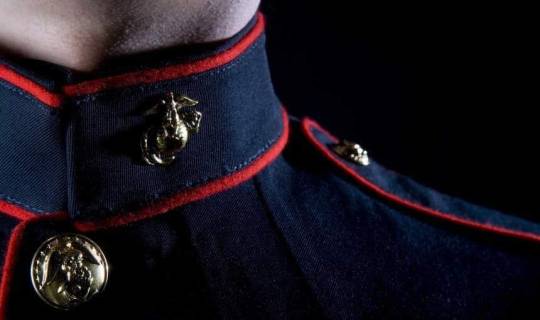

DID YOU KNOW?
When Thomas Jefferson saw there was no negotiating with Muslims, he formed what is now the Marines (sea going soldiers). These Marines were attached to U. S. Merchant vessels. When the Muslims attacked U.S. merchant vessels they were repulsed by armed soldiers, but there is more.
The Marines followed the Muslims back to their villages and killed everyone in the village.
It didn't take long for the Muslims to leave U.S. Merchant vessels alone.
English and French merchant vessels started running up our flag when entering the Mediterranean to secure safe travel.
Why the Marine Hymn contains the verse, "To the Shores of Tripoli ".
This is very interesting and a must read piece of our history. It points out where we may be heading.
Most Americans are unaware of the fact that over two hundred years ago the United States had declared war on Islam, and Thomas Jefferson led the charge!
At the height of the 18th century, Muslim pirates (the "Barbary Pirates") were the terror of the Mediterranean and a large area of the North Atlantic .
They attacked every ship in sight, and held the crews for exorbitant ransoms. Those taken hostage were subjected to barbaric treatment and wrote heart-breaking letters home, begging their governments and families to pay whatever their Mohammedan captors demanded.
These extortionists of the high seas represented the North African Islamic nations of Tripoli, Tunis , Morocco , and Algiers - collectively referred to as the Barbary Coast - and presented a dangerous and unprovoked threat to the new American Republic .
Before the Revolutionary War, U.S. merchant ships had been under the protection of Great Britain . When the U.S. declared its independence and entered into war, the ships of the United States were protected by France.
However, once the war was won, America had to protect its own fleets.
Thus, the birth of the U.S. Navy. Beginning in 1784, 17 years before he would become president, Thomas Jefferson became America's Minister to France. That same year, the U.S. Congress sought to appease its Muslim adversaries by following in the footsteps of European nations who paid bribes to the Barbary States rather than engaging them in war.
In July of 1785, Algerian pirates captured American ships, and the Dye of Algiers demanded an unheard-of ransom of $60,000. It was a plain and simple case of extortion, and Thomas Jefferson was vehemently opposed to any further payments.
Instead, he proposed to Congress the formation of a coalition of allied nations who together could force the Islamic states into peace. A disinterested Congress decided to pay the ransom.
In 1786, Thomas Jefferson and John Adams met with Tripoli's ambassador to Great Britain to ask by what right his nation attacked American ships and enslaved American citizens, and why Muslims held so much hostility towards America, a nation with which they had no previous contacts.
The two future presidents reported that Ambassador Sidi Haji Abdul Rahman Adja had answered that Islam "was founded on the Laws of their Prophet, that it was written in their Quran that all nations who would not acknowledge their authority were sinners, that it was their right and duty to make war upon them wherever they could be found, and to make slaves of all they could take as prisoners, and that every Musselman (Muslim) who should be slain in battle was sure to go to Paradise."
Despite this stunning admission of premeditated violence on non-Muslim nations, as well as the objections of many notable American leaders, including George Washington, who warned that caving in was both wrong and would only further embolden the enemy, for the following fifteen years, the u\American government paid the Muslims millions of dollars for the safe passage of American ships or the return of American hostages.
The payments in ransom and tribute amounted to over 20 percent of the United States government annual revenues in 1800.
Jefferson was disgusted. Shortly after his being sworn in as the third President of the United States in 1801, the Pasha of Tripoli sent him a note demanding the immediate payment of $225,000 plus $25,000 a year for every year forthcoming.
That changed everything.
Jefferson let the Pasha know, in no uncertain terms, what he could do with his demand. The Pasha responded by cutting down the flagpole at the American consulate and declared war on the United States.
Tunis, Morocco, and Algiers immediately followed suit.
Jefferson, until now, had been against America raising a naval force for anything beyond coastal defense, but, having watched his nation be cowed by Islamic thuggery for long enough, decided that it was finally time to meet force with force.
He dispatched a squadron of frigates to the Mediterranean and taught the Muslim nations of the Barbary Coast a lesson he hoped they would never forget. Congress authorized Jefferson to empower U.S. ships to seize all vessels and goods of the Pasha of Tripoli and to "cause to be done all other acts of precaution or hostility as the state of war would justify".
When Algiers and Tunis, who were both accustomed to American cowardice and acquiescence, saw the newly independent United States had both the will and the right to strike back, they quickly abandoned their allegiance to Tripoli.
The war with Tripoli lasted for four more years, and raged up again in 1815. The bravery of the U.S. Marine Corps in these wars led to the line "to the shores of Tripoli" in the Marine Hymn, and they would forever be known as "leathernecks" for the leather collars of their uniforms, designed to prevent their heads from being cut off by the Muslim scimitars when boarding enemy ships.
Islam, and what its Barbary followers justified doing in the name of their prophet and their god, disturbed Jefferson quite deeply.
America had a tradition of religious tolerance. In fact Jefferson, himself, had co-authored the Virginia Statute for Religious Freedom, but fundamentalist Islam was like no other religion the world had ever seen.
A religion based on supremacy, whose holy book not only condoned but mandated violence against unbelievers, was unacceptable to him.
His greatest fear was that someday this brand of Islam would return and pose an even greater threat to the United States .
It's death by a thousand cuts, or inch-by-inch as some refer to it, and most Americans have no idea that this battle is being waged every day across America.
477 notes
·
View notes
Text
“…The Roman Republic spent its first two and a half centuries (or so) expanding fitfully through peninsular Italy (that is, Italy south of the Po River Valley, not including Sicily). This isn’t the place for a full discussion of the slow process of expanding Roman control (which wouldn’t be entirely completed until 272 with the surrender of Tarentum). The consensus position on the process is that it was one in which Rome exploited local rivalries to champion one side or the other making an ally of the one by intervening and the other by defeating and subjecting them…
…The simple (and perhaps now increasingly dated) way I explain this to my students is that Rome follows the Goku Model of Imperialism: I beat you, therefore we are now friends. Defeated communities in Italy (the system is different outside of Italy) are made to join Rome’s alliance network as socii (‘allies’), do not have tribute imposed on them, but must supply their soldiers to fight with Rome when Rome is at war, which is always.
It actually doesn’t matter for us how this expansion was accomplished; rather we’re interested in the sort of order the Romans set up when they did expand. The basic blueprint for how Rome interacted with the Italians may have emerged as early as 493 with the Foedus Cassianum, a peace treaty which ended a war between Rome and Latin League (an alliance of ethnically Latin cities in Latium). To simplify quite a lot, the Roman ‘deal’ with the communities of Italy which one by one came under Roman power went as follows:
All subject communities in Italy became socii (‘allies’). This was true if Rome actually intervened to help you as your ally, or if Rome intervened against you and conquered your community.
The socii retained substantial internal autonomy (they kept their own laws, religions, language and customs), but could have no foreign policy except their alliance with Rome.
Whenever Rome went to war, the socii were required to send soldiers to assist Rome’s armies; the number of socii in Rome’s armies ranged from around half to perhaps as much as two thirds at some points (though the socii outnumbered the Romans in Italy about 3-to-1 in 225, so the Romans made more strenuous manpower demands on themselves than their allies).
Rome didn’t impose tribute on the socii, though the socii bore the cost of raising and paying their detachments of troops in war (except for food, which the Romans paid for, Plb. 6.39.14).
Rome goes to war every year.
No, seriously. Every. Year. From 509 to 31BC, the only exception was 241-235. That’s it. Six years of peace in 478 years of republic. The socii do not seem to have minded very much; they seem to have generally been as bellicose as the Romans and anyway…
The spoils of Roman victory were split between Rome and the socii. Consequently, as one scholar memorably put it, the Roman alliance was akin to, “a criminal operation which compensates its victims by enrolling them in the gang and inviting them to share to proceeds of future robberies” (T. Cornell, The Beginnings of Rome (1995)). The alliance system included a ladder of potential relationships with Rome which the Romans might offer to loyal allies.
Now this isn’t a place for a long discussion of the Roman alliance system in Italy (that place is in the book I am writing), so I want us to focus more narrowly on the bolded points here and how they add up to significant changes in who counted as ‘Roman’ over time. But I should note here that while I am calling this a Roman ‘alliance system’ (because the Romans call these fellows socii, allies) this was by no means an equal arrangement: Rome declared the wars, commanded the armies and set the quotas for military service. The ‘allies’ were thus allies in name only, but in practice subjects; nevertheless the Roman insistence on calling them allies and retaining the polite fiction that they were junior partners rather than subject communities, by doing things like sharing the loot and glory of victory, was a major contributor to Roman success (as we’ll see).
First, the Roman alliance system was split into what were essentially tiers of status. At the top were Roman citizens optimo iure (‘full rights,’ literally ‘with the best right’) often referred to on a community basis as civitas cum suffragio (‘citizenship with the vote’). These were folks with the full benefits of Roman citizenship and the innermost core of the Roman polity, who could vote and (in theory, though for people of modest means, only in theory) run for office.
Next were citizens non optimo iure, often referred to as having civitas sine suffragio (citizenship without the vote); they had all of the rights of Roman citizens except for political participation in Rome. This was almost always because they lived in communities well outside the city of Rome with their own local government (where they could vote); we’ll talk about how you get those communities in a second. That said, citizens without the vote still had the right to hold property in Roman territory and conduct business with the full protection of a Roman citizen (ius commercii) and the right to contract legal marriages with Roman citizens (ius conubii discussed above). They could do everything except for vote or run for offices in Rome itself.
Next down on the list were socii (allies) of Latin status (note this is a legal status and is entirely disconnected from Latin ethnicity; by the end of this post, Rome is going to be block-granting Latin status to Gauls in Cisalpine Gaul, for instance). Allies of Latin status got the benefits of the ius commercii, as well as the ability to move from one community with Latin status to another without losing their status. Unlike the citizens without the vote, they didn’t automatically get the right to contract legal marriages with Roman citizens, but in some cases the Romans granted that right to either individuals or entire communities (scholars differ on exactly how frequently those with Latin status would have conubium with Roman citizens; the traditional view is that this was a standard perk of Latin status, but see Roselaar, op. cit.). That said, the advantages of this status were considerable – particularly the ability to conduct business under Roman law rather than what the Romans called the ‘ius gentium‘ (‘law of peoples’) which governed relations with foreigners (peregrini in Roman legal terms) and were less favorable (although free foreigners in Rome had somewhat better protections, on the whole, than free foreigners – like metics – in a Greek polis).
Finally, you had the socii who lacked these bells and whistles. That said, because their communities were allies of Rome in Italy (this system is not exported overseas), they were immune to tribute, Roman magistrates couldn’t make war on them and Roman armies would protect them in war – so they were still better off than a community that was purely of peregrini (or a community within one of Rome’s provinces; Italy was not a province, to be clear).
The key to this system is that socii who stayed loyal to Rome and dutifully supplied troops could be ‘upgraded’ for their service, though in at least some cases, we know that socii opted not to accept Roman citizenship but instead chose to keep their status as their own community (the famous example of this were the allied soldiers of Praenesti, who refused Roman citizenship in 211, Liv. 23.20.2). Consequently, whole communities might inch closer to becoming Romans as a consequence of long service as Rome’s ‘allies’ (most of whom, we must stress, were at one point or another, Rome’s Italian enemies who had been defeated and incorporated into Rome’s Italian alliance system).
But I mentioned spoils and everyone loves loot. When Rome beat you, in the moment after you lost, but before the Goku Model of Imperialism kicked in and you became friends, the Romans took your stuff. This might mean they very literally sacked your town and carried off objects of value, but it also – and for us more importantly – meant that the Romans seized land. That land would be added to the ager Romanus (the body of land in Italy held by Rome directly rather than belonging to one of Rome’s allies). But of course that land might be very far away from Rome which posed a problem – Rome was, after all, effectively a city-state; the whole point of having the socii-system is that Rome lacked both the means and the desire to directly govern far away communities. But the Romans didn’t want this land to stay vacant – they need the land to be full of farmers liable for conscription into Rome’s armies (there was a minimum property requirement for military service because you needed to be able to buy your own weapons so they had to be freeholding farmers, not enslaved workers). By the by, you can actually understand most of Rome’s decisions inside Italy if you just assume that the main objective of Roman aristocrats is to get bigger armies so they can win bigger battles and so burnish their political credentials back in Rome – that, and not general altruism (of which the Romans had fairly little), was the reason for Rome’s relatively generous alliance system.
The solution was for Rome to essentially plant little Mini-Me versions of itself on that newly taken land. This had some major advantages: first, it put farmers on that land who would be liable for conscription (typically placing them in carefully measured farming plots through a process known as centuriation), either as socii or as Roman citizens (typically without the vote). Second, it planted a loyal community in recently conquered territory which could act as a position of Roman control; notably, no Latin colony of this sort rebelled against Rome during the Second Punic War when Hannibal tried to get as many of the socii to cast off the Romans as he could.
What is important for what we are doing here is to note that the socii seem to have been permitted to contribute to the initial groups settling in these colonies and that these colonies were much more tightly tied to Rome, often having conubium – that right of intermarriage again – with Roman citizens. The consequence of this is that, by the late third century (when Rome is going to fight Carthage) the ager Romanus – the territory of Rome itself – comprises a big chunk of central Italy (as seen in the map below) but the people who lived there as Roman citizens (with and without the vote) were not simply descendants of that initial Roman citizen body, but also a mix of people descended from communities of socii throughout Italy.”
- Bret Devereaux, “Citizens and Allies.”
3 notes
·
View notes
Text
Interesting National Symbols From Around the World
National symbols play an important role in a country’s global identity. Not only do they represent the ideals, tastes, or history of a nation, but they also create a sense of community for the population. Around the world, different emblems like animals, foods, drinks, dances, flowers, and trees are chosen as national symbols in an attempt to define the country as a whole.
Sometimes these symbols are decided upon by the sovereign state as a way to create a cultural sense of unity. Other times, a country’s symbol is chosen by default, and while it may not bear official status, it represents the nation nonetheless. Either way, the result is a wide variety of national emblems that range from surprising to mystical.
Unicorn (Scotland)

Visit Scotland and it’s likely you’ll notice an abundance of unicorns displayed throughout the country. This is because the mythical creature is Scotland's national animal. You can find unicorns depicted on castles, fountains, cathedrals, coins, and even tombs. According to Scottish legend, the unicorn is both pure and powerful, and almost impossible to tame. King William I chose the unicorn for the royal coat of arms in the 12th century, as did King James VI of Scotland in 1603, and it has been a national symbol ever since.
Tikka Masala (England)

A plate of fish and chips likely comes to mind when you think of traditional English fare, but the country’s favorite dish has roots on another continent. Tikka masala, a flavorful curry that most often features chicken, is equally beloved across the country. Purported to be “a true British national dish,” tikka masala was introduced to the nation by British citizens of Indian descent. The dish is a popular take-out item and considered to be the ultimate British comfort food.
Gumboot (South Africa)

All you need to perform South Africa’s gumboot dance is a sense of rhythm and a pair of Wellington boots. The national dance began as a form of communication between Black miners during apartheid — all of whom wore tall rubber boots in flooded working conditions. Verbal communication between workers was restricted, which prompted the miners to “speak” to each other by slapping and stomping their boots. These movements eventually transformed into the gumboot dance, which now serves as a visual representation of the nation’s oppressive history as well as its work towards reconciliation.
Oak Tree (United States)

The majestic bald eagle is widely known as a symbol of the U.S., but there is another national emblem that is just as stately — the oak tree. The mighty oak was voted the national tree of the U.S. by the Arbor Day Foundation in 2004. Selected over 21 other North American species such as maple, redwood, and pine, the oak was chosen because of the strength it represents, as well as its ability to grow from a tiny acorn into a powerful tree.
Kumis (Mongolia)

Kumis, the national drink of Mongolia, is a fermented beverage enjoyed by many throughout the nation. Although the drink is traditionally brewed with the milk of a mare, kumis can also be made from cow’s milk. Known for its slightly acidic flavor, the dairy beverage becomes carbonated during the fermentation process. It also has a relatively low alcohol content, which can range from one to three percent, and is most often served chilled.
Quadrille (Jamaica)
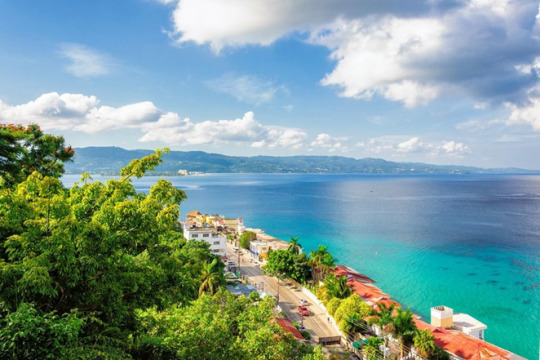
Originally a formal dance performed in court, the quadrille was first brought to Jamaica by Europeans. Over time, enslaved people adopted the quadrille for themselves, morphing the traditional dance into three new varieties: the contra, the ballroom, and the camp style. Of all three, the camp style is the most lively interpretation. This Afro-Jamaican version of the formal quadrille still employs partner dancing, but requires more rhythmic hip swings and footwork.
Dodo Bird (Mauritius)
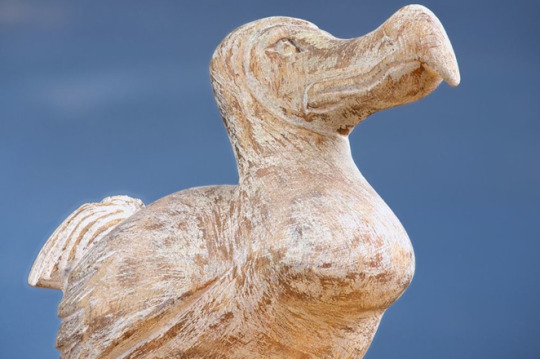
The dodo bird has been extinct for centuries, but that doesn’t mean it can’t be celebrated. Native to the island nation of Mauritius, this large bird vanished from Earth in the 17th century. Since it couldn’t fly and had little fear of humans, the pigeon-like creature was easily caught by Dutch sailors for dinner — a repeated event that eventually led to its demise. As the national symbol of Mauritius, the dodo bird is still celebrated in spirit, and its image is found in shops throughout the country.
Palm Wine (Malaysia)

Palm wine, also called toddy, has long been a traditional drink of Malaysia, with roots dating back to 1886. Named for the tree from which it is procured, palm wine is extracted from the unopened flower of a budding palm fruit. After it’s tapped, the liquid sits for 48 hours so that it naturally ferments and becomes alcoholic. It can be consumed chilled or at room temperature and is often mixed with stout beer, fresh chilies, or onions.
Guinea Pig (Peru)

Although the cute, furry creature is beloved as a pet elsewhere around the world, the guinea pig is actually considered to be a delicacy in Peru called cuy — and is most often found on a dinner plate. Served since Incan times, roasted guinea pig is a popular dish enjoyed throughout this South American country.
Caesar Cocktail (Canada)
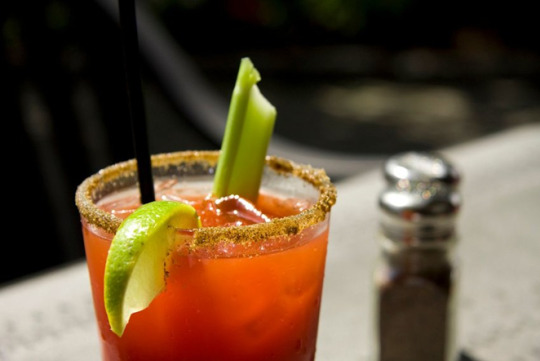
You won’t find a Bloody Mary on a menu in Canada. Instead, you’ll find a very similar substitute — the Caesar. Similar to a Bloody Mary, a Caesar cocktail contains vodka, tomato juice, hot sauce, and Worcestershire sauce. However, the addition of clamato juice, which is made from clams, is the secret ingredient that transforms it into the national drink of Canada. The drink is beloved by many and said to be a hangover cure. Canada even celebrates National Caesar Day annually in May.
Century Egg (China)

Although the process doesn’t take 100 years as the name implies, making century eggs is certainly time consuming. This Chinese egg dish has been around for centuries, ever since a farmer found a naturally preserved duck egg in the mud and decided to try it as a snack. Today, century eggs are soaked in a solution of clay, salt, and ash for weeks. The result is the national dish, a blackened egg with a jelly yolk that is eaten by itself or with the addition of pickled ginger.
Palo de Mayo (Nicaragua)
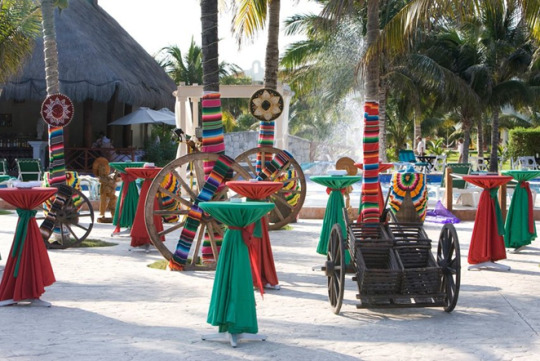
Palo de Mayo is a vibrant, colorful tribute to the African goddess of fertility. The Afro-Caribbean dance is most often performed at the Palo de Mayo Festival, a four-week event that takes place in Bluefields, Nicaragua, throughout May. The high-tempo dance is often performed in brightly colored costumes to celebrate the vibrancy of the Caribbean culture, while also welcoming spring and the possibility of new life
Spiral Aloe (Lesotho)

A tiny country located within the borders of South Africa, Lesotho is home to the Maluti Mountains, the only place in the world where spiral aloe grows. This rare plant thrives in thin, rocky soil and blooms pink and red flowers during spring and summer. Named for its mesmerizing spiral shape, this variety of aloe is endangered and therefore illegal to harvest, but beautiful to behold.
Gallic Rooster (France)

National symbols play an important role in a country’s global identity. Not only do they represent the ideals, tastes, or history of a nation, but they also create a sense of community for the population. Around the world, different emblems like animals, foods, drinks, dances, flowers, and trees are chosen as national symbols in an attempt to define the country as a whole.
Sometimes these symbols are decided upon by the sovereign state as a way to create a cultural sense of unity. Other times, a country’s symbol is chosen by default, and while it may not bear official status, it represents the nation nonetheless. Either way, the result is a wide variety of national emblems that range from surprising to mystical.
1 note
·
View note
Text
mr. house isn’t necessarily a capitalist because he’s a mathematician not a politician and he can still GET IT and here’s why
disclaimer. the problem with meta like this is that there’s always the prevailing question of authorial intent, especially in fallout new vegas where a team of writers had to collaborate very quickly to produce a game that, while highly enjoyable, was in some aspects incomplete. cut content offers more insight into what aspirations the development teams had for certain story-lines, but in some cases this information just makes things unclear. bringing an analysis especially to a video game text is inherently problematic because it may just be projection or misinterpretation, and not an actual dissection of the media. the point of this post is to actually undo some of this and look at house more objectively.
fandom interpretation of house and critique of the capitalist label: house mentions that he created a vast economic empire, but it’s never really stated what his economic philosophy actually is. it is only canon that house taxes the ncr for their use of hoover dam, whereas the casinos don’t complain about any tribute they have to pay to house. furthermore, the purpose of his income from the casinos and the dam is not just to generate money, but to put money back into the city and his tech. i also argue that if house taxed his citizens, this would not be a negative act. taxation is now considered to be a very left-wring concept, many libertarians and right wing conservatives actively protesting against taxation - not just for big business, but especially for the average citizen. the purpose of taxation, in a left wing context, is to give the government the means to implement infrastructure changes. again, it is never outright mentioned what house’s economic policy is, but it is at times a reach to assume he is that much of a dictatorial, greedy overlord.
when house does bring up his financial prowess, it is to incentivize the courier to work for him ( x, x, x ), and to restate his efficiency and ability as a ruler. furthermore, the reconstruction of the vegas strip, and hiring of tribals is all done on his account. house personally finances the rebuild of his city, and those working under him are employees ( x ), the strip being a means to regenerate revenue to pour back into technology ( x ). he’s not in it for the money, it is a means to an end.
house doesn’t know what a politic is. nowhere is this more clear than in the line “autocrat not a dictator” because 1) those are the same thing 2) he’s hardly either of those in new vegas, if anything he’s more of a benevolent overseer than even a boss and it is stated multiple times ( x ) in the game that many aren’t even sure he exists. of course, autocrat sounds better than dictator and house is not ignorant to this, but it is bold of him to assume he is someone so active in his own territory. by extension, it is also a stretch to say what his economic policies are when house doesn’t even know what his basic political system is. this isn’t to say he doesn’t know what he’s doing, he’s an extremely talented tactician, and a savvy businessman, but his background is in the robotics industry and not politics.
technocracies and vegas. when house says "If you want to see the fate of democracies, look out the windows" he is not referring to the vote of the average citizen, rather the phenomenon we face now as well where certain parties leverage the voice democracy gives them to corrupt it. lobbyists and congressmen have a long history of collaboration for the sake of votes and then tax benefits. american imperialism encourages this and house’s criticism is directed at the fact that very rarely was this democratic system being used to ensure the greater good. the idea behind a technocracy is that chief researchers and a scientific elite lead a country in the name of progress, and this is clearly the system house is aiming for, but he fails to say this.
on the other hand, he continuously restates how important progress is to him, and to vegas. his goals as outlined by himself are not expansion, nation building or empire building (even if he uses the word) it is simply bringing new vegas back to the technologically advanced city it was. there are issues with this as with any dream, but unlike the ncr and the legion he does not seek to dominate the mojave. in fact, house has very few expansionist ambitions. and yet he gets more criticism than either faction, which is odd when it is stated multiple times in canon that under the ncr people are assimilated and heavily taxed. but that is nothing in comparison to the barbaric legion when they are enslaved at best and killed at worst. but that’s alright for the fandom because they wear roman costumes and that makes them “funny”.
house isn’t perfect. my biggest criticism of house’s politics is that they aren’t present enough. the ultra luxe gets away with cannibalism, and the gomorrah is a center for drug trafficking and snuff films. the autocrat title is void, even with his ambitions to have the power to enforce his rule, because he has the reputation of being “the ghost man of vegas” even with the technology to change this. it is shown many times that house would rather tinker with his own robots than participate in strip politics, and this is my biggest criticism of him. if he has the power to make changes, he should. furthermore, the state of freeside, largely due to lack of ncr improvements, begs the question of annexation and if it would not be a good decision to include the neighborhood in vegas. a slight expansion would be beneficial to the area as it has been stated in canon that it is more affordable to live under house than it is the ncr ( x, x ).
characterizing house as the worst of the three is unfair. it would be unrealistic to say that house is the best faction to ally with, as he has his own flaws, but it is also unrealistic to claim that he is the worst. while this has not been outright said in the fandom, he is by far the faction leader that receives the most criticism. this in itself would not be bad, if the other factions (including yes man) were lent the same amount of discern, which they are not. the issues with the legion are endless, and it should be obvious that they are the evil faction. but more often than not couriers who ally with them are portrayed as somewhat misguided, but genuinely well-meaning when the game does nothing but emphasize that the legion is horrible. the ncr is lent no attention at all, when they’re one of the oldest factions in the fallout universe and those with the most influence in the west coast. their aim to recreate a democratic society is well-intentioned, and certainly the kind of security the wasteland needs. however, their expansionist goals become imperialistic and they show little care for smaller settlements. yes man as a choice is largely dependent on how the courier chooses to exploit his abilities, but no one touches upon the shortsightedness of an independent courier. an independent courier makes an enemy of the largest faction in the west, and assassinates the one man who knew how to run the city and all the tech that comes with it. it is an empowering ending, but not perfect. nevertheless, mr. house is picked apart more than most, and i’d argue unfairly. he is by no means morally perfect, but he’s not the villain most portray him as.
5 notes
·
View notes
Text
Most revealing excerpts:
The following passages are excerpted from the excellent book, The Pirate Coast: Thomas Jefferson, the First Marines, and the Secret Mission of 1805, by Richard Zacks:
"In 1801, just after the inauguration of Thomas Jefferson, Tripoli (modern-day Libya) had become the first country ever to declare war on the United States. The ruler, Yussef Karamanli, had ordered his Janissaries to chop down the flagpole at the U.S. consulate to signal his grave displeasure with the slow trickle of gifts from America.
For more than two centuries, the Barbary countries of Morocco, Tunis, Algiers, and Tripoli had been harassing Christian ships, seizing cargo and capturing citizens.
Algiers once boasted more than 30,000 Christian slaves, including one Miguel Cervantes, before he wrote Don Quixote. European powers in the 1500s and 1600s fought ferocious battles against Muslim pirates like Barbarosa.
However, over time, a cynical system of appeasement had developed. The nations of Europe paid tribute — in money, jewels, and naval supplies — to remain at peace. England and France — in endless wars — found it cheaper to bribe the Barbary pirates than to devote a squadron to perpetually trawling the sea off Africa. At its core, expediency outweighed national honor.
When the thirteen American colonies split off from mother England, they lost British protection.
The United States found itself lumped in the pile of potential Barbary victims, alongside the likes of Sardinia and Sicily. (From 1785 to 1815, more than six hundred American citizens would be captured and enslaved. This nuisance would prove to be no mere foreign trade issue but rather a near-constant hostage crisis.)...'
Please, read more in the link and on the book itself!
1 note
·
View note
Conversation
People of the Edwardian phase of the Hundred Years War as dril tweets
Philippe VI de France: Time and time Again. People on here Fuck me over and ruin my life. simply for starting the Dialouge.
Edward III of England: thinking of wrapping my entire body in barbed wire and becoming Sovereign.
Jehan II de France: a teen approached me at the food court and said “I see you wore your clown costume today” and i spent the next 9 hours processing the insult.
Jehanne de Bourgogne: CHILD: Papa.. tell me once more about WIFE’s DUTY. PAPA: it is WIFE’s DUTY to protect her husband from villains, always.
Jitka Lucemburská: Damn. the MomTown forums just started requiring 4 point Mom Verificaiton to be able to post there for some reason..anyone got a work around?
Philippa de Hainaut: my opinion on politics: my opinion on politics is that politidcs is extremely good, but sometimes it is bad.
Ludwig IV, Holy Roman Emperor: bigmouth fake priest telling me to “drink a shitload of holy water and kill yourself” as penance? this has happened at three churches now.
Pope Benedict XII: it is with a heavy heart that i must announce that the celebs are at it again.
Jehan III, duc de Bretagne: i just left an enormous pile of vomit behind golds gym for all of you abominable pig clowns to pick at #blackfridaydeals
Robert III d’Artois: (in really quiet, barely audible voice) hope your dick falls of bitch.
Hugues Quiéret: currently employed as Water Guru at the beach. it’s sort of like being a lifeguard except i have no inclination to touch the drowning people.
Geoffroy d’Harcourt: OH im so Fucking sorry “Your Majesty”, i didnt realize that dick rings were banished in this dystopian piss earth. Ur probably a 9gag poster.
Jacob van Artevelde: (in highly rational and cool voice) i have the higher follower count than them. i wiont let them undermine me.
Pope Clement VI: may the wind carry my tweets and soothte the sick, the wounded, the downtrodden of both man & beast, across the savage shit earth of trolls,
Jehanne de Valois, comtesse de Hainaut: startling how im the only person on this site with an actual human soul. you would think the other guys on here have one, but no.
Eudes IV, duc de Bourgogne: myth: making me mad is cool FACT: making me mad is a crap move& people who do it are all sociopathivc criminals with fucked up rotten brains.
Jehan de Montfort: turning my headlights off when driving at night,.. so that my Rivals cannot see me.
Jehanne de Flandre: i just want to find the optimal bra for sniper operations, but everoyne here is so rude, and pieces of shit.
Johann der Blinde of Bohemia: Q: If your post was proven by a counsil of wise men to be racist, or bullshit, would you bar it from the record? A: I do not delete my posts.
Charles II, comte d’Alençon: ((SPILLING BLOOD ALL OVER KEYBOARD) THIS IS WHAT U WANT. THIS IS WHAT U FUCKING BASTARDS WANT RIGHT (1 WEEK LATER) WHY ARE THE KEYS STICKING
Jehanne de Clisson: as far as im concerned the best revenge is ordering wolf piss online & pouring it into soneones car. “living well” is too hard.
Arnaud de Cervole: i will raze every forest and devour each city in blood tribute for the crime of 9/11!! please nbring back blue collar TV
Frank Hennequin: the jduge orders me to take off my anonymous v mask & im wearing the joker makeup underneath it. everyone in the courtroom groans at my shit.
William Montagu, 1st Earl of Salisbury: im at the point in my life where i cant relate to any popular fictional characters unless they use massive amounts of hair gel and steriods.
Antonio Doria: my name is Destyn. i build crossbows and sell weed to all your dads and im 15.
Gautier VI de Brienne: MYTH: my posts are for the Pauper REALITY: my posts are for the Prince.
Étienne Marcel: looked at a newspaper today. looks like we’re getting taxed out the wazoo, with this president. anyone else see this shit? tax out the wazoo.
Guillaume Cale: “FEAR IS USED 2 ENSLAVE THE MASSES,” I SAID AS I RIPPED THE FUCKIN DECORATIVE CARDBOARD SKELETON OFF OF THE COMMUNITY CENTERS BULLETIN BOARD
Edward Montagu, 1st Baron Montagu: girls always love to telling people not to“ Mansplain” but they do not care of, “Man's Pain”
Louis Iᵉʳ, comte de Flandre: 1) i do not owe you mother fuckers a damn thing 2) i will not hear any more questions or comments unless they pertain to MetroPCS, or Pepsi.
Philippe III de Navarre: the crusaders fire ballistas into my throbbing diaper- unlesashing a torrent of mustard yellow shit and poisoning the entire village.
Gaston II, comte de Foix: i am going to plunge a sword into our bed and officially end outr 40 yr marriage if you do not stop yelling while i am recording my stream’s.
Henry de Grosmont, 1st Duke of Lancaster: please help my cousin “Bruno_THought_Leader” who just had his account suspended for threatening to “Fuck” brexit.
Robert Le Coq, Bishop of Laon: i have absolutely zero interest in friendship, i have absolutely zero interest in jokes, i am simply here to collect data and earn respect.
Jehan Iᵉʳ, comte d’Armagnac: the joke is on you fuck face. i actually love getting screamed at and publicly shamed for my dumb-assed bull shit . I love apologizing.
Bardi and Peruzzi families: boy oh boy do i love purchasing large amounnts of Fool’s Gold. wait a minute... fools gold fucking sucks. this stuff is no good..!! Fuck !!!
Jehanne II de Navarre: i regret being tasked the emotional burden of maintaining the final bastion of morality and NIce manners in this endless ocean of human SHIT.
William de Bohun, 1st Earl of Northampton: if you have less than 1000 followers i can guarantee you that me and the boys share your posts in vip chat rooms and call you a "Muthafucka”.
William de la Pole: thinking about getting the dow jones back on track, simply by making a few phonecalls. but certain people have been a bitch to me, so i wont.
Thomas de Beauchamp, 11th Earl of Warwick: shutting computer down until the shitty moods & attitudes can fuck off., if you need me ill be on my other computer, sititng 60° to my right.
Thomas Holland, 1st Earl of Kent: ive heard from a reliable source that people arre putting their lips on to my girl friends avatars and going “muah muah muah.” cut it out.
Raoul II de Brienne, comte d’Eu: hate it when my boss knocks out the front leg of my desk with a baseball bat and funko pop lego shit flies every where.
Karel IV, Holy Roman Emperor: “RESULT You are the Serpant. YOu dislike loud places and people are constantly putting drama in your life. But you’re strong.” This is true.
Charles de Blois-Châtillon: torturing my damn dick with corn cob holders in Penance for the foul tone i took with the subway corporation today.
Jehanne de Penthièvre: i help every body, im not racist, i keep myself nice, and when i ask for a single re-tweet in return i am told to fuck off, fuck myself, etc.
Jacques Iᵉʳ de Bourbon, comte de La Marche: “ah boo hoo hoo i want to post Foul comments to content leaders” Fat Chance, Dimwit. I will annihilate you under bulwark of the Law and God.
John Chandos: DOCTOR: you cant keep doing this to yourself. being The Last True Good Boy online will destroy you. you must stop posting with honor ME: No,
Jehan d’Artos, comte d’Eu: , who had gone missing for 17 years and was presumed dead after failing to return from his ultimate dumpster diving life quest
William Douglas, 1st Earl of Douglas: i get emails. i get emails saying the trolls have won, and that i should bow to them, since i have lost the battle. to this i say FAT-CHANCE.
David II of Scotland: “jail isnt real,” i assure myself as i close my eyes and ram the hallmark gift shop with my shitty bronco.
Charles de La Cerda: i think that turning myself Gay in the summer of 2013 would really impress my overseas investors.
William de Montagu, 2nd Earl of Salisbury: my watch beeps whwich means its time to stand in front of my ex-wife’s house and play “Hit THe Road Jack” while dacning and licking her mail.
Edward the Black Prince: IF THE ZOO BANS ME FOR HOLLERING AT THE ANIMALS I WILL FACE GOD AND WALK BACKWARDS INTO HELL
Jehan III de Grailly: its fucked up how there are like 1000 christmas songs but only 1 song aboutr the boys being back in town.
Louis II, comte de Flandre: U Have Forced Me To Take Extreme Measures To Protect My Business And My Lifestyle.
Blanche de Navarre: the wise man bowed his head solemnly and spoke “theres actually zero difference between good & bad things. you imbecile. you fucking moron”
Charles II de Navarre: Sovereign Citizens Getting Owned Compilation
Philippe de Navarre: shooting off automatic rifles making horrible diarrhea shit noises as the recoil makes my tiny dick flop around. hell yeah. thats cool to me.
Charles, Dauphin de Viennois: surprise, dad. while you were witnessing the pennsylvania state lottery i tried on all your work gloves and they looked very handsome on me.
#hundred years' war#medieval#dril#english history#french history#european history#history#i should be making a rubric but this is way more fun
16 notes
·
View notes
Text
The World Of Ice And Fire: Nymeria’s Travels
Warning, Spoilers Ahead...
Garin’s forces have been annihilated by the Valyrians. Nymeria, the princess of Ny Sar, knew she needed to leave before the Valyrians arrived or her city would suffer the same fate.
Ny Sar no longer had any fighting men as they had left and died with Garin. Nymeria gathered all the remaining ships – large and small. Legends state the fleet consisted of 10,000 ships but there was no accurate count.
Nymeria led the fleet down the Rhoyne, “past ruined and smoking towns and fields of the dead, through waters choked with bloated, floating corpses.” Nymeria and her fleet used and older channel of the Rhoyne and emerged into the Summer Sea.
The fleet consisted of river crafts, skiffs, poleboats, trading galleys, fishing boats, pleasure barges, and rafts. Most weren’t seaworthy and were crammed full of women, children, and old men.
Many ships were lost in the voyage. Some sank in storms. Others turned back only to be captured and enslaved by the Valyrians. Others fell behind and were never seen again.
Nymeria’s fleet first arrived in the Basilisk Isles only to battle the corsair kings of Ax Isle, Talon, and the Howling Mountain. Nymeria lost twoscore ships and hundreds of Rhoynar were carried off into slavery.
The corsairs offered Nymeria a deal: The Rhoynar would be allowed to settle on the Isle of Toads if they gave up their boats and sent each king thirty virgin girls and pretty boys yearly as tribute. Nymeria refused and took her fleet to sea again.
Nymeria’s next stop was “the steaming jungles of Sothoryos”. “Some settled on Basilisk Point, others beside the glistening green waters of the Zamoyos, amongst quicksands, crocodiles, and rotting, half-drowned trees. Princess Nymeria herself remained with the ships at Zamettar, a Ghiscari colony abandoned for a thousand years, whilst others made their way upriver to cyclopean ruins of Yean, haunt of ghouls and spiders.”
Sothoryos has a few benefits – gold, gems, rare woods, exotic pelts, queer fruits, strange spices – but the Rhoynar did not flourish. The heat was sullen and oppressive. The stinging flies brought one disease after the other: green fever, the dancing plague, blood boils, weeping sores, and sweetrot. The Zamoyos River was infested with carnivorous flesh, and “tiny worms that laid their eggs in the flesh of swimmers”.
The towns on Basilisk Point were raided by slavers, the populations either killed or carried off by the slavers. Yeen suffered attacks from the “brindled ghouls of the jungle deeps”.
Most of the afflictions are typical of tropical areas – especially for people unused to the climate. The dancing plague intrigues me – was it similar to the dancing plague of Europe? And the ghouls – are they actual supernatural creatures or simply strange animals?
The Rhoynar lasted a year in Sothoryos before they reached their breaking point. One day a boat from Zamettar arrived at Yeen to find that every member of the town had vanished without a trace. Shades of Roanoke? Despite the mystery surrounding Roanoke, the most likely theory is the citizens of Roanoke assimilated with a nearby native tribe to avoid death by starvation. Where did the natives of Yeen go? Were they taken by a mass ghoul attack and turned into yum-yums? Did slavers abduct the entire population? Did they decide to ditch the rest of the Rhoynar and head out to sea?
Nymeria summoned her remaining people and returned to the sea. They spent three years sailing the southern seas.
They landed on Naath, the Isle of Butterflies. The natives were a peaceful people who welcomed the newcomers. The Naath gods, however, were all “nope” and struck down the Rhoynar with a “nameless mortal illness”. Back to the ships!
The Rhoynar next settled on an “uninhabited rock off the easter shore of Walano”, which became known as the Isle of Women. Unfortunately, the stony soil yielded little food and many died from starvation.
By this point, the Rhoynar were desperate and frustrated. Nymeria commanded a return to the boats and a portion of the group decided to follow Druselka, a priestess who felt Mother Rhoyne was calling her children home. Druselka and her followers returned to Rhoyne only to encounter the Valyrians. They were hunted down, slain, or enslaved.
Nymeria decided to sail towards Westeros.
Up next, Nymeria and company land in Dorne.
#A Song Of Ice And Fire#Game Of Thrones#ASOIAF#GOT#The World Of Ice And Fire#Rhoynar#Nymeria#Sothoryos
13 notes
·
View notes
Text

Potential Realised.
Twelve years ago the Labour party and the Metropolitan Police attempted to steal Harmony my precious six year old daughter and my beautiful son Riley who was three years old from myself and their incredible and amazing loving and devoted mother Leann.
Today I say to the Labour party we have destroyed you.
Leann my beautiful soulmate and myself Mark Anthony Ward have fought for twelve long years to expose socialist terrorism in Great Britain.

If you ever go anywhere near them again I will come and select various socialist party scum and I will put your shitty worthless political aspirations in the fucking ground.
The Great British electorate has voted for justice against the bent barrister and former corrupt director of prosecutions.
Don't test your luck with me Keir Starmer you live in North London I know your address and I will run you over on a very heavy motorcycle.
Thanks to the socialist media in Great Britain for suppressing democracy and ensuring the backlash that destroyed your own failed vision of a Great Britain enslaved by socialist Labour.
We have fucking destroyed you all and this is my tribute to Leann Harmony and Riley and our Staffordshire bull terrier Ruby Bella.
Fuck Labour and fuck the bent Metropolitan Police @ Marlowe House.
Cowardly child thieving fucking bastards.
Sidcup boys will fight the world for our freedom.

I dedicate my twelve years of battle to all the teachers and students @ Hurstmere Sports Technical College formerly Hurstmere Secondary All Boys School Sidcup Kent.
The place to get a really great education for life.
youtube
I'm not new to fighting for justice at Hurstmere All Boys Secondary School supported by Mr Richard Syred my head of year I fought for ethnic group pupils being racially bullied and created a signed petition that broke up the gangs and dispersed them to different form groups within my year group.
I was a first year pupil just eleven years old and new what I stood for.
It was a contribution to equality and fairness and those pupils were able to study peacefully and realise their potential.
They have all probably achieved more than me in life and I couldn't be happier about their success and those are the Conservative values that inspire me to battle for Great Britain.
The Conservative values I am familiar with are about the empowerment of our Great British citizens and the willingness to place others in the best possible position to live the most enjoyable peaceful and rewarding life possible, to realise their potential and to sacrifice my own personal desire to accumulate wealth and social standing to realise my own potential and be true to who I truly am and to be honest with myself.
For all that I may not have I have ensured my fellow citizens have more than they thought possible and Conservatism actually means pride self belief courage fortitude intelligence strength and self belief and the stubborn gritty bold determination to become who you know you are.
People flourish when they have freedom and security people get hurt when they are mislead and endlessly trapped.
Conservatism is get off your ass and be sure to fucking try to believe and achieve.
Labour is stay at home feel and sorry for yourself and we can control you that way by keeping you on benefits.
I give everything I have away to others and that is what I keep doing and I enjoy doing that and that is because I can do that and it pisses the Labour party off because Conservative values deliver the goods and the Labour party only ever talk about delivering the goods.
Labour hate me because I am black and I stick by the Conservative government because I choose to be broke and a philanthropist and Conservatism is about being my black ass self and being Labour party black is about moaning that Great Britain is racist.
White people are no worse than black people the beautiful thing about being mixed race is I can be connected to my white heritage when it suits me or I can connect with my black heritage when it suits me when it suits me I can say fuck both of you I'm not either of you today I'm mixed race and when it suits me I can say I love both sides of my heritage today I am both black and white because I am mixed race so that is adaptable Conservative thinking that cannot be pinned down and entrapped because it is too resourceful and brilliant and expressive.
Therefore I can't be manipulated by the implementation of racially motivated political and socialist division.
Racism and learning why people feel threatened by what they don't understand led me to engage with white people.
Racism and learning why people feel threatened by what they don't understand led me to engage with black people.
What is dangerous is to set social communities against each other for political gain as all it does is create anger resentment and division and the Labour party won't be there to help you in Peckham when you get shot in the head so our prayers and thoughts are with the lady fighting for her life in hospital.
We are all Great British citizens and we can be a cohesive productive prosperous nation we must fight against terrorism however wherever and in whatever form it takes.
I urge the Labour party to please cease the stoking of division in Great Britain you are causing Great British people to suffer and get hurt and even get killed so please take the aggression out of your politics and unite the Labour party.
Terrorising the electorate into voting Labour is not a workable solution.
If you hate the people within the Labour party you spill that hatred into society so the two separate ideological halves of the Labour party must communicate with each other and make the party work as a viable political entity.
Both sides have something to bring to the table it is very possible to improve the Labour party but you all need to be professional politicians.
Original policies are a good start because attacking the Conservative government is backfiring badly the electorate know you have no credibility as a viable option for political power no one in their right mind votes for socialist party enslavement.
Have you considered the fact that the electorate may think you are all fucking crazy??
Mark Anthony Ward @ Harmony & Riley Potential Realised.
0 notes
Photo

CEREMONY COMMEMORATING THE ABOLITION OF SLAVERY IN THE FRENCH EMPIRE, MARTINIQUE
The luminous daguerreotype offered here is believed to depict the ceremony of planting a ‘liberty tree’ in Martinique to celebrate the abolition of slavery in the French Republic. Following the French government’s February 1848 decree to end slavery, a series of these unique tree planting rituals took place throughout the French Antilles in the months that followed.
Subsequent to the French Revolution of 1848, a provisional government was installed that adopted the historic motto of ‘Liberté, Égalité, Fraternité.’ François Arago, Minister of the Navy, employed Victor Schoelcher to issue a decree acknowledging the emancipation of the slaves throughout the French colonies. This decree was adopted on 27 April 1848 and was to take effect within two months. Of the estimated 120,000 inhabitants of Martinique in 1848, approximately three quarters of the population were slave laborers and they grew mutinous in anticipation. A bloody rebellion prompted Governor Louis de Rostoland to formally enact the abolition of slavery in Martinique on May 23rd.
The ‘liberty tree’ was a popular symbol throughout the French revolution and at the beginning of the Second Republic. In the French colonies, ceremonial planting of the tree was in specific celebration of the enslaved being reborn as free French citizens. Two such ceremonies are documented in Marin and Le François, municipalities of Martinique, on May 30th, only a week after the official abolition.
The freed slaves played a major part in these ceremonies, often carrying the liberty tree in procession and sewing French flags to decorate the town square. In the present daguerreotype, the laterally-reversed lettering clearly reads ‘France’ and ‘République.’ Also visible are the magistrates, administrators, generals, and clergy that were present at these ceremonies and dressed in official costume. Contemporary reports in Journal officiel de la Martinique vividly describe the ceremonies and published sermons given by priests on their occasion.
Daguerreotypes made in celebration of the abolition of slavery in the French Republic are exceedingly rare. At the time of this writing, no other such photograph is believed to have appeared at auction. A daguerreotype illustrating a religious ceremony in tribute to the abolition is in the permanent collection of the J. Paul Getty Museum.
On the occasion of the 150th anniversary of the abolition of slavery in the French colonies, the present image was reproduced for inclusion in the 1998 exhibition Le Combat Contre l’Esclavage: Une Conquête Permamente de la Dignitéat the Sénat in Paris
Anonymous French PhotographerCEREMONY COMMEMORATING THE ABOLITION OF SLAVERY IN THE FRENCH EMPIRE, MARTINIQUE
Estimation 50,000 — 70,000 USD Lot. Vendu 60,000 USD (Prix d’adjudication avec commission acheteur)
0 notes